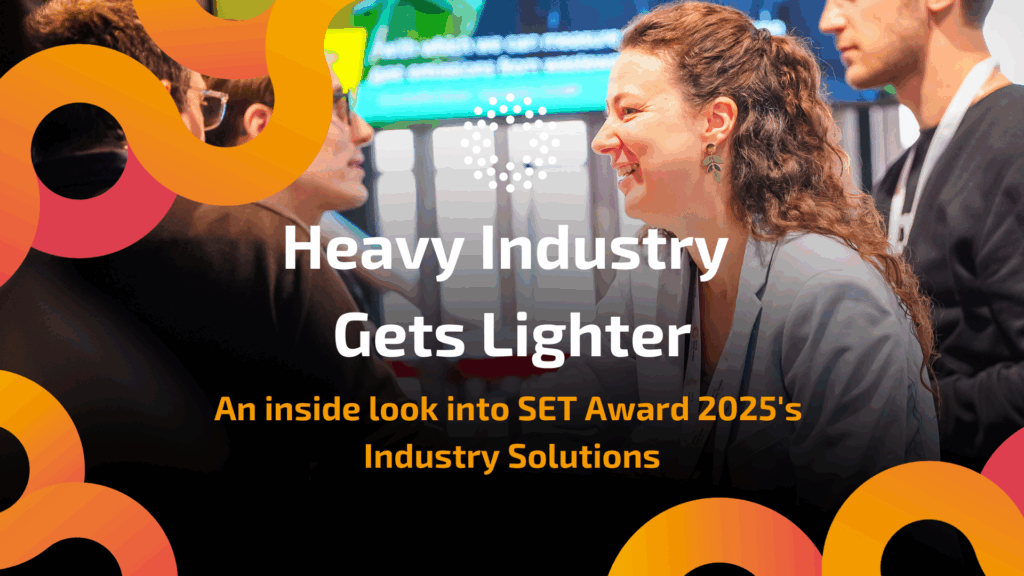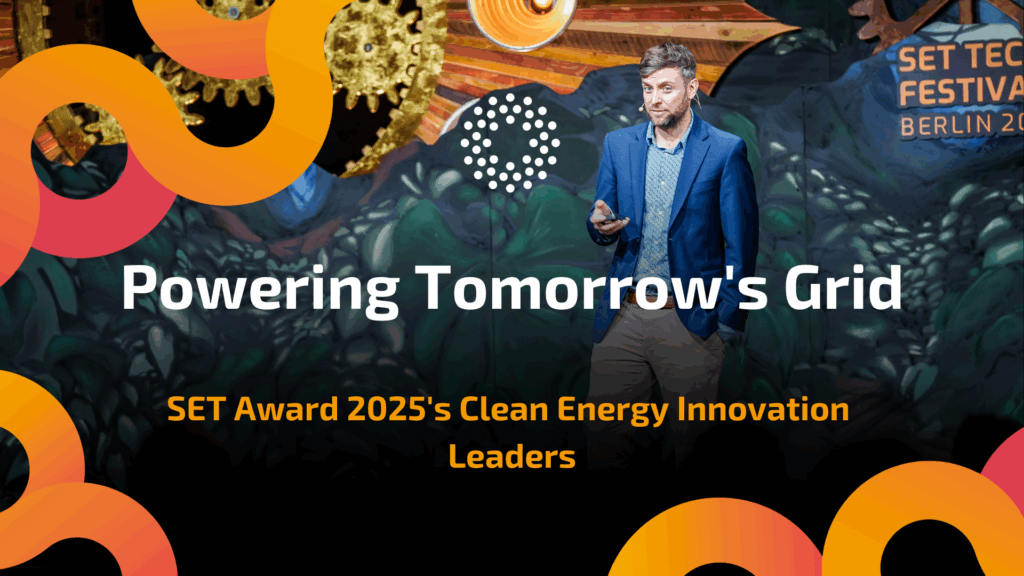Finalist of the Special Prize: SDG-7 category, Pollinate Energy is a social enterprise which provides the urban poor with access to basic sustainable products that fundamentally make their lives better. They consult urban slum communities to determine their needs, source and trial off-the-shelf products, and sell those products that are durable and sustainable. They believe in educating customers about products and providing payment plans to make those products more affordable and accessible. This is done through a network of door-to-door sales people – their Pollinators. Having reached over 123,000 people across 970 communities, they have helped to save almost 3.7 million litres of kerosene and 8.9 million kg of CO2 emissions. We spoke to Alexie Seller, Co-founder and CEO about her start-up and experience at SET 18. Read more about them here: https://pollinateenergy.org/
Alexie, what motivated you to start the company?
When we met families living in shanty slums in urban Bangalore, India, we wondered why they would possibly be using kerosene lamps despite living inside India’s first electrified city. It became apparent that because they had no formal address, and no reliable work, they couldn’t access better infrastructure or purchase high quality products. I and my co-founding team came from backgrounds spanning international development, business, and renewable energy, and so we decided to start a sales business that brought life-changing products – like solar lanterns – to marginalized communities living in poverty. We offered payment plans on these products to ensure their affordability and guarantee that sustainable energy was accessible for all.
What was the process for coming up with your product/innovation?
We started off with a research study on willingness to pay for solar – this informed us that rather than buying a cheap product with a short lifetime, our communities wanted to invest in higher quality products and needed 4-5 weeks to pay it off. This gave us the first platform to trial our model. We then looked at similar models of solar distribution around the world, such as Grameen Shakti and Solar Sister – these models operate in rural settings where villagers form self-help groups and have high levels of trust. They employ an agent from the village to sell, distribute and service the products. We took this approach to the slums of urban India – but identified that the social fabric was different. In the developing slums of India, families don’t know their neighbours and we often find 3-4 different languages spoken in one slum. As a result, we decided we didn’t need to recruit agents from the slum, but could recruit and train someone who has good language profiency and is comfortable working in that environment – we call these people our Pollinators. We allocate a territory of 15-20 slums per Pollinator, and train them to go door-to-door, building relationships and educating families. We discovered that even without social self help groups, our customers were willing and able to repay, and we’ve maintained a default rate <1% with this model.
What do you love about the sector work in?
Our sector is changing so rapidly, and new companies are developing into maturity, which excites me because it means that the world is getting serious about energy access and community development. I’m most excited about the advances in technology that keep the cost low for families in poverty, and the incredible potential of a simple solar light to lift a family out of poverty.
What keeps you up at night?
The overwhelming scale of the problem. 1.3 billion people lack access to electricity worldwide, and over 2 billion still cook on harmful biomass exposing themselves to ~2 packs of cigarette smoke a day. Through our work we’ve already impact 0.5m people, but to truly overcome this challenge we need wide-scale collaboration and investment.
How did you find your overall SET experience and what was your favorite part?
I loved it! It was great being able to meet all of the other finalists, and to be able to spend extra time with them at the pitch training and additional sessions. My favorite part was probably the award ceremony – it was an incredible event (and I loved the drummers!)
Any big news or updates for your start-up recently?
Yes! As of this month, Pollinate Energy is merging with US-based Empower Generation. We are thrilled to be joining forces with such an innovative organisation dedicated to sustainably tackling the world’s most formidable energy challenges. Our missions couldn’t align better. Both Pollinate and EG empower entrepreneurs to establish sales and distribution businesses that serve the most marginalised communities, delivering life-improving products and meaningful income to people living in poverty.
EG’s model and impact to date is impressive. Launched in 2011, their distribution network includes 20 women-led businesses who manage over 250 rural women, working as village level entrepreneurs and earning income with every product they sell. As of December 2017, the network has distributed 57,000+ clean energy products, saving poor Nepali families over $2,737,000 AUD in household energy expenses and displacing 12,861 tons of CO2 by replacing kerosene and candles. EG has impacted the lives of 294,626 people by providing them with cleaner, safer access to power, light, and cook stoves.
What do you think your start-up will look like in three years?
Here’s what Pollinate will look like by 2020: We’ll recruit, train, and support over 1,000 women as pollinators, enable them to earn significant income, be promoted to leadership positions, gain power and status in their household and community, and become positive role models for their children. We will reach a positive impact for 1 million+ people with our life-changing products and services. Finally, we will increase our rate of reach to 4,000+ families per month.


